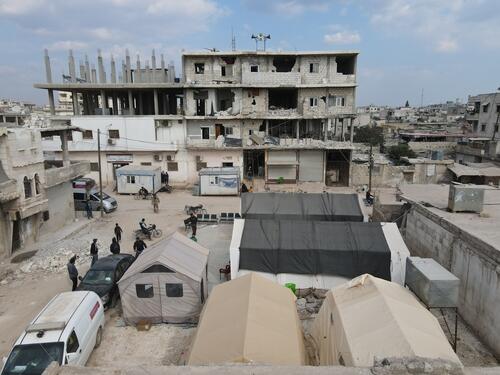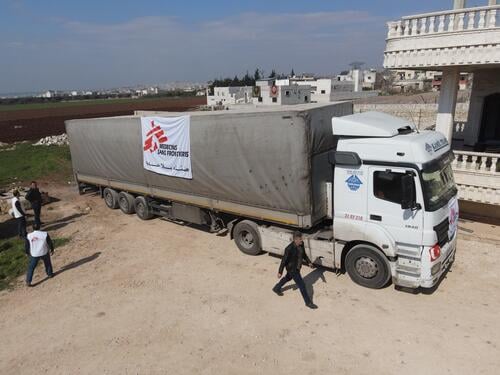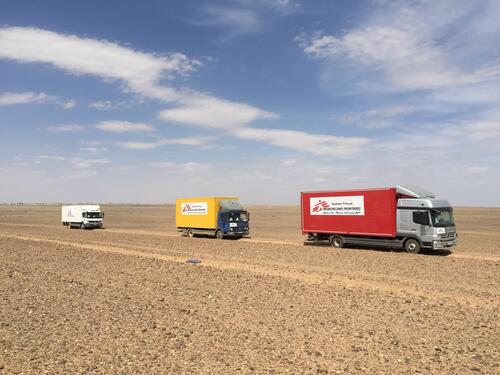As Syria marks 12 years of conflict, the impact of the devastating earthquakes that struck the country on 6 February is pushing the healthcare system in the northwest to its limits. Fifty-five health facilities across northwest Syria were damaged by the earthquakes, while services were suspended in 15 of them, severely limiting people’s access to healthcare.
One of the worst affected areas is Jindires town, in Aleppo province, where 60 per cent of buildings were destroyed by the earthquakes and 90 per cent of buildings were damaged.
“Driving through the streets of Jindires, we saw the massive destruction,” says Enrique Garcia, Médecins Sans Frontières (MSF) project coordinator for north Aleppo. “Some neighbourhoods are completely destroyed and a lot of buildings are damaged, including the maternity centre supported by MSF, where we provided safe deliveries, including emergency caesareans and newborn care, in collaboration with a local partner.”
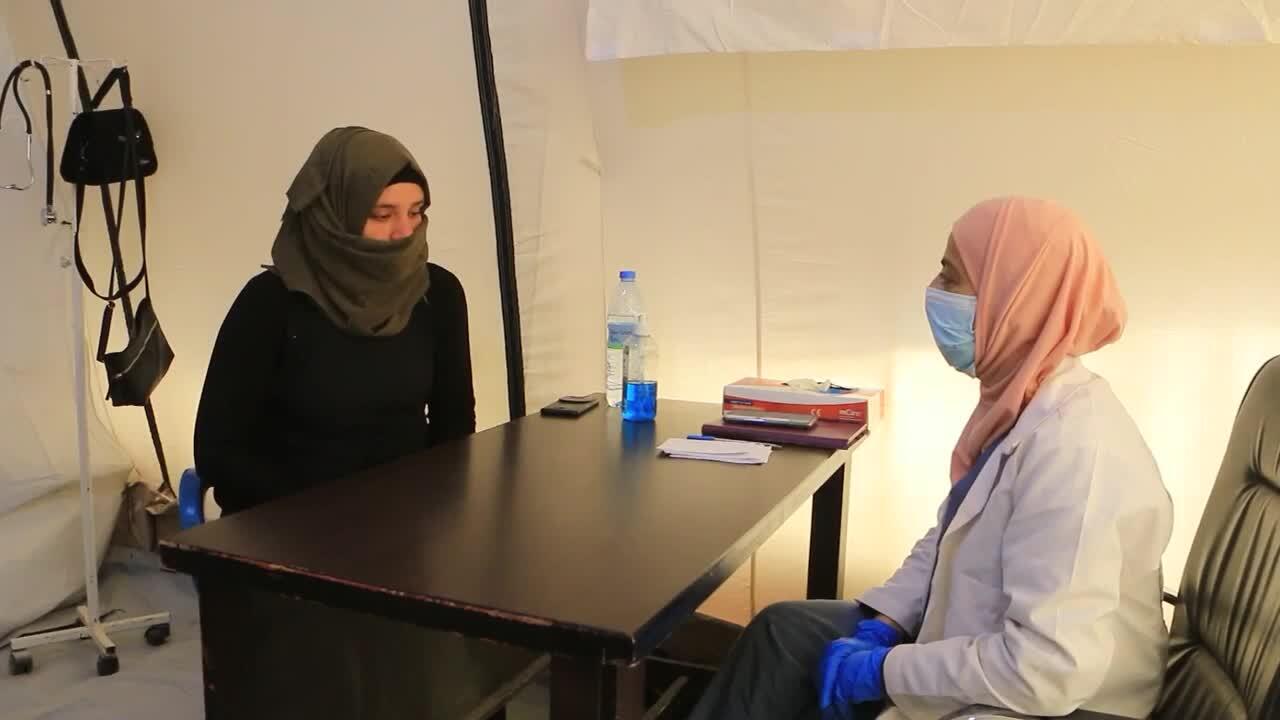
Providing healthcare in Jindires
To ensure the continuity of essential services such as maternity care and paediatrics services, immediate short-term solutions are needed. Our team in Jindires town is running a mobile clinic in a camp set up for 270 families who were made homeless by the earthquakes. We have performed 1,550 medical consultations and offered 670 mental health sessions here.
Working with a local organisation, our teams have also helped set up tented wards next to the hospital where pregnant women can give birth, children can come for medical consultations, and women and girls can receive sexual and reproductive healthcare. Over 1,000 patients have received treatment in this field hospital. Patients in need of specialist care are transferred to hospitals elsewhere.
“The whole population of Jindires has been displaced,” says Garcia. “Those who have not left the town are living in the camp or in tents next to their damaged houses, among them pregnant women and children who require medical attention.
“Working with our local partner, we want to ensure that they have access to essential healthcare services when they need them. We’re also working to improve the conditions of the health facilities we support.”
Staff are working in difficult conditions, sometimes in non-permanent structures such as tents, with insufficient medical supplies and equipment to cover people’s needs.Enrique Garcia, MSF project coordinator for north Aleppo
In the first hours following the earthquakes, we launched an immediate response to support hospitals and health centres across Idlib and Aleppo provinces, providing them with emergency, trauma and surgical kits and medical supplies to help them cope with the influx of the wounded.
Six weeks later, a larger and more comprehensive response is needed to restore the capacity of the health system and ensure the continuity of health services for people in northwest Syria.
“Health facilities are overwhelmed and under-resourced,” says Garcia. “Staff are working in difficult conditions, sometimes in non-permanent structures such as tents, with insufficient medical supplies and equipment to cover people’s needs.
“There is an urgent need for additional support to help restore the healthcare system in northwest Syria and ensure timely and sustainable healthcare provision to people.”
Even before the earthquakes, the health system in northwest Syria was shattered by 12 years of war. Severe shortages of medical staff mean that hospitals often have to share staff to remain functional. Most health facilities face regular shortages of essential medicine and medical supplies.
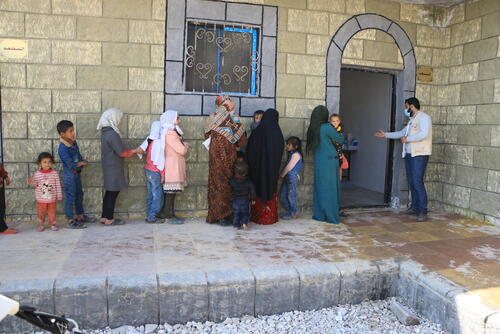
Despite the difficult conditions, health staff in Jindires are working day and night to respond to people’s medical needs.
“I was amazed by the strength and the generosity of the staff I met,” says Garcia. “I saw a midwife, who was herself made homeless by the earthquakes and was living in the camp, receive patients in her tent.
“I saw a pharmacist bring her baby with her to work at the health centre, as she was still breastfeeding. And I met many others who have been working tirelessly since day one, despite being affected by the earthquakes themselves.”
Our teams in Jindires and in other affected areas in Aleppo and Idlib provinces are developing a response to fit people’s needs. This includes supporting health facilities, providing medical and mental health services, distributing relief items to affected families and implementing water and sanitation activities in the camps for displaced people.
In Jindires, one of our main priorities will be to help build a new maternity centre to replace the one that was destroyed, and to provide a safe and convenient space in which women can give birth.




